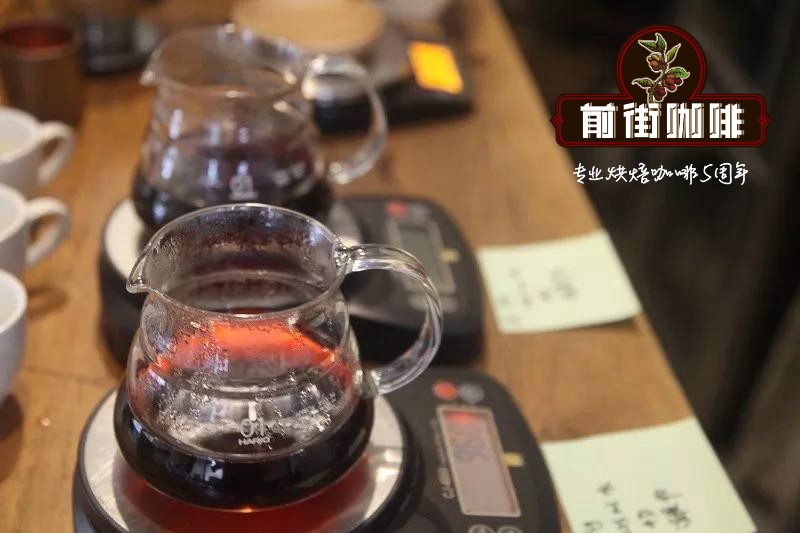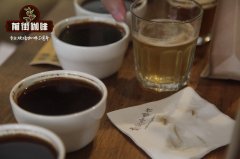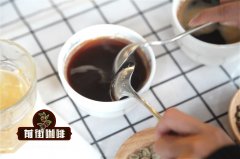Introduction to Chinese Coffee: how is Yunnan Coffee in China? is Yunnan Coffee good?

Professional coffee knowledge exchange more coffee bean information please follow the coffee workshop (Wechat official account cafe_style)
In the past, Yunnan coffee was mostly used to make instant coffee because of its poor quality, which led to a poor reputation of Yunnan coffee. However, Yunnan coffee in recent years is like a dark horse, slowly appearing in the market of boutique coffee.
History of Coffee cultivation in Yunnan
History can be traced back to 1892, when a French missionary brought coffee to Yunnan from abroad and successfully planted the first coffee tree in a place called Zhu Kula. a hundred years later, coffee has become a bright spot of characteristic agriculture on the Yunnan plateau.
After 1930, Mr. Liang Jinshan, a famous overseas Chinese leader, brought coffee to Pudong and Luoming for planting until the founding of the people's Republic of China. After 1952, under the guidance of experts in Baoshan, Lujiang and other places began to grow a large number of coffee, and the history of large-scale cultivation has been nearly 60 years.
In the mid-1990's, the planting scale reached 4000 hectares. By the end of 1997, the planting area of coffee in the province had reached 7800 hectares. At present, the planting area of the province accounts for 70% of the national area, and the output accounts for 83% of the whole country. Yunnan coffee has established the dominant position in China in terms of planting area and coffee bean production.
Yunnan coffee grading system
Although coffee has been grown in Yunnan for many years, it is still not mature enough. Its grading system is also relatively messy.
1) International commonly used classification standards:
According to the size of coffee beans, the round hole grading screen is used for classification. The international custom of small grains of coffee has a size of 10-20, and the number used represents the sieve aperture as the fraction with that number as the numerator and 64 as the denominator, in inches. For example: 14 refers to the raw coffee beans that can pass through a sieve with an aperture of more than 64 inches by 14thumb, and 19 refers to those that can be screened by a sieve with an aperture of more than 64 inches by 19thumb. (1 inch ≈ 2.54cm)
2) the common grading standards of domestic coffee:
According to the sieve hole 6.5, 6.0, 5.5, 5.0 mm is divided into five levels.
First class: more than 6.5mm, full and complete particles.
Second class: 6.0-6.4 mm, plump, more uniform.
Grade 3: 5.3-5.9 mm, fuller and slightly less uniform.
Level 4: 5.0-5.4 mm, with incomplete rice, accounting for more than 75% of the total.
Level 5: less than 5.0mm, incomplete rice, complete accounted for more than 30%.
International standard rules for inspection of defects in small grains of coffee:
It is graded according to the number of defects, and is often identified by how many defects are contained in a certain coffee bean. According to the identification method of impurities and defective beans in coffee beans stipulated by the International Standards Organization, 300 grams of coffee bean samples were taken to calculate the magazines and defective beans for classification.
(source: http://www.yunnancoffee.org/ProductShow.asp?id=84)
Coffee cultivation in Yunnan
Variety
Typica and Bourbon, two classic high-quality coffee varieties, are the main coffee varieties in Yunnan. Katim Catimor series varieties (stronger anti-virus ability and higher yield) were introduced from Kenya in 1991, which is a variety of Arabica species (also known as small grain species). Because the morphology and habits of the two varieties are similar, the two varieties are mostly mixed.
Growing period
Yunnan small-grain coffee will bear fruit after 4 years.
Coffee is a sunny plant. Coffee has the characteristics of multiple flowering and concentrated florescence. The flowering period of small seed coffee in Yunnan is 2mi-July, and the flowering period is 3m-May. The flowering of coffee is greatly affected by climate, especially rainfall and temperature. The life span of coffee flowers is short, only 2 murmurs for 3 days. Small seed coffee usually opens at 3: 00 am and 5: 00 am, and blooms at 5: 00 am.
The development time of coffee fruit is longer. It takes 10 months for the fruit of small seed coffee to ripen in 10-December of the year. Rainfall has a great influence on fruit development, and climatic conditions directly affect fruit development.
Yunnan coffee treatment method
In Yunnan, the main treatment method is washing.
Use a peeling machine to separate most of the pulp from the coffee beans, then guide the shelled beans to a clean sink, soak them in water and ferment to completely remove the residual pulp layer. Through washing, unripe beans and defective beans are selected because of buoyancy, and the fermentation process is easier to control, so the flavor is not mixed like sun beans, but shows obvious acidity, complexity and cleaner characteristics in the cup.
Yunnan coffee producing area
The western and southern parts of Yunnan Province are located between 15 °N and the Tropic of Cancer, and most areas are 1000-2000 meters above sea level. The topography is dominated by mountains and slopes, with large ups and downs, fertile soil, sufficient sunshine, rich rainfall and large temperature difference between day and night. These unique natural conditions form the particularity of Yunnan small grain coffee taste-strong but not bitter, fragrant but not strong, slightly fruity.
Coffee cultivation in Yunnan is mainly distributed in Lincang, Baoshan, Pu'er and Dehong, where there are natural resources of low latitude, high altitude and large temperature difference between day and night, which makes Yunnan a golden growing area for producing Arabica coffee with high quality.
Pu 'er Tea
Although Pu'er City is famous for its tea, its coffee planting area has reached 789000 mu, with an output of 58600 tons and a total output value of 2.469 billion yuan, making it the largest coffee planting base in Yunnan. Its climate, geography and soil conditions are unique for growing coffee.
Pu'er coffee has a history of one hundred years. It began to be cultivated at the end of the 19th century and developed into industrialization in 1988. Now the planting area of coffee in the city has reached 767000 mu, making it the main coffee producing area and coffee trade distribution center with the largest planting area, the highest yield and the best quality in the mainland.
Pu'er Rong is known as the "coffee capital of China". In addition to becoming the main producing area of Chinese coffee, Pu'er coffee is also exported to more than 30 countries and regions, including the Americas, Europe and Asia, creating a new "black gold" market.
Lincang
Lincang City is located in the southwest of Yunnan Province, with the Tropic of Cancer running through the south, Pu'er in the east, Dali in the north, Baoshan in the west, and Myanmar in the southwest. It is a bright pearl in the southwest of the motherland because it is close to the Lancang River. The annual average temperature in Lincang is between 16.8 ℃ and 17.2℃. The dry and wet season is obvious and the sunshine is sufficient.
Baoshan
Baoshan small-grain coffee in Yunnan has a long history of cultivation. Baoshan small-grain coffee can be said to be a national geographical indication product, and it is one of the coffee with good quality in the whole country and in the world.
The average temperature of Baoshan is 21.5℃, and the highest is 40.4℃, which is basically frost-free all the year round. It is recognized as the best producing area of small-grain coffee. The small-grain coffee cultivated here is famous at home and abroad for its strong but not bitter, fragrant but not strong, well-proportioned small noodles, mellow and fruity.
Small seed coffee plant name Arabica species, is a kind of coffee, a total of more than 100 varieties. Among them, tin pickup and bourbon are recognized as the best Arabica species in the world, and what the Baoshan people usually call "old varieties" are actually iron pickups and bourbon.
Product name: Huaguo Mountain
Coffee producing area: China, Yunnan, Baoshan
Coffee variety: Typica
Production altitude: 1200m
Quality level: AA
Treatment: washing
Baking degree: medium baking
Cup test flavor: rich fruit, melon, herbal aromas, supple in the mouth, middle nuts, milk chocolate, lively and bright sour plums at the end, good balance, medium thickness body full, temperature from hot to warm can feel sour and sweet layers, first sweet then sour, apricot, citrus sour, aftertaste black tea, a little brown sugar.
Recommended hand punching parameters:
V60 filter cup, water temperature 90 degrees, small Fuji grinding 4, water powder ratio close to 1:15, total time about 2:00.
Related recommendation: Yunnan small coffee beans how to brew Yunnan small coffee brand recommendation
Important Notice :
前街咖啡 FrontStreet Coffee has moved to new addredd:
FrontStreet Coffee Address: 315,Donghua East Road,GuangZhou
Tel:020 38364473
- Prev

Yunnan Fine Coffee Manor Yunnan small Coffee Manor Yunnan Coffee hand-brewed Coffee Flavor
Professional coffee knowledge exchange more coffee bean information please follow the coffee workshop (Wechat official account cafe_style) Yunnan is now China's largest coffee producing area, Starbucks, Nestl é and other large coffee enterprises have smelled its great potential. History can be traced back to 1892. More than 100 years ago, French missionary Father Tian Deneng planted the first coffee plant in Zhu Kula Village, Binchuan County, Dali City.
- Next

Yunnan Coffee Exploration trip to Yunnan for coffee
Professional coffee knowledge exchange more coffee bean information Please follow the coffee workshop (Wechat official account cafe_style) I have been back in Yunnan for a week, so I always feel that I should sort out some words, at least it is worth the trip, and it will be convenient for me to read it in the future. In fact, this is my second visit to Yunnan, and the last time I took a cursory look at Pu'er. With a lot of questions to see, and with
Related
- Does Rose Summer choose Blue, Green or Red? Detailed explanation of Rose Summer Coffee plots and Classification in Panamanian Jade Manor
- What is the difference between the origin, producing area, processing plant, cooperative and manor of coffee beans?
- How fine does the espresso powder fit? how to grind the espresso?
- Sca coffee roasting degree color card coffee roasting degree 8 roasting color values what do you mean?
- The practice of lattes: how to make lattes at home
- Introduction to Indonesian Fine Coffee beans-- Java Coffee producing area of Indonesian Arabica Coffee
- How much will the flavor of light and medium roasted rose summer be expressed? What baking level is rose summer suitable for?
- Introduction to the characteristics of washing, sun-drying or wet-planing coffee commonly used in Mantenin, Indonesia
- Price characteristics of Arabica Coffee Bean Starbucks introduction to Manning Coffee Bean Taste producing area Variety Manor
- What is the authentic Yega flavor? What are the flavor characteristics of the really excellent Yejasuffi coffee beans?

